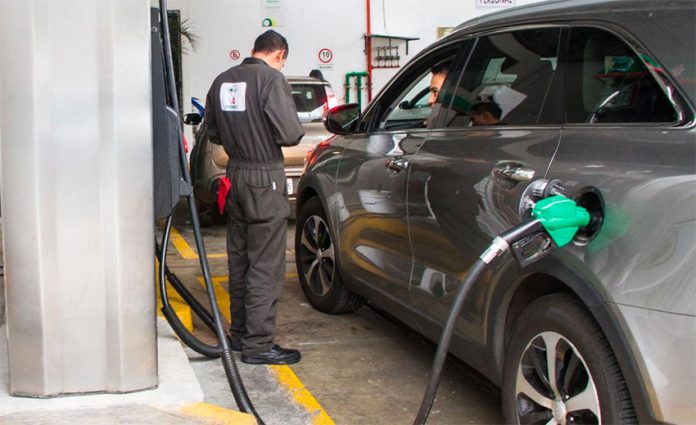The federal government is considering a ban on the use of cash to purchase gasoline and pay tolls as a means to fight tax evasion and money laundering, two people with direct knowledge of the plan told the news agency Bloomberg.
A report published today said the government has discussed the plan with the banking industry but it has not yet been approved.
The sources told Bloomberg that a final decision on whether the ban will go ahead won’t likely be made until after the Bank of México (Banxico) rolls out its digital payment platform known as CoDi next month.
CoDi, short for Cobro Digital (Digital Charge), is part of a wider government plan to push more people into the banking system and cut down on the use of cash, the sources said.
Cash is king in Mexico, partially because of the huge informal economy and the illicit drug trafficking trade.
World Bank data shows that only around 40% of Mexicans have bank accounts and Finance Secretary Arturo Herrera said in March that cash is used for between 80% and 90% of transactions.
The plan to ban cash at fuel pumps and toll booths could help to increase government revenue by widening the tax base at a time when the economy is slowing. Mexico collects less tax as a share of GDP than any other OECD country, according to the World Bank.
The two people who spoke to Bloomberg said the plan would also help to identify gas stations that are purchasing stolen fuel by tracking their electronic transactions.
While that would help the government in its crackdown on fuel theft, the inability to use cash for some transactions would likely be of even greater benefit to banks.
Banks’ client bases would likely grow significantly, providing them with greater opportunities to generate profits via cards, loans and mortgages.
One of the Bloomberg sources said that a ban on the use of cash for gas and tolls coupled with the introduction of Banxico’s CoDi system could increase digital payments tenfold.
Both people said that cash payments for public transport, school tuition, electricity and passports could also be outlawed at some time in the future.
The plan to move towards a less cash-dependent society fits with President López Obrador’s crusade against corruption and his desire to achieve greater financial inclusion of Mexico’s population, especially people who live in rural and remote areas.
However, poor mobile and internet coverage outside urban areas loom as significant challenges to overcome, while weaning people off cash might be even more difficult.
Source: Bloomberg (sp)
